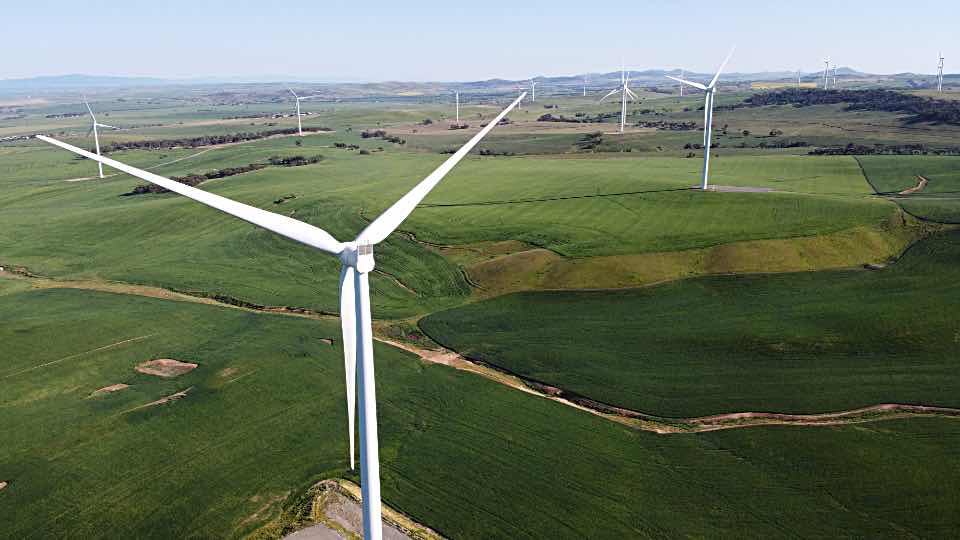
Gullibility is a tendency to be easily manipulated into believing something is true when it isn’t.
The event that motivated me to write this page was a scare campaign run by an Australian politician against a proposal for an offshore Windfarm development zone. While Andrew Hastie (the politician) didn't come up with a single valid reason why people should be concerned about the proposal he still got a number of gullible people to sign his petition opposing the proposed zone. While researching for this page I came across a piece published by the BBC: Why are people so incredibly gullible?; written by David Robson. It started discussing a story about flesh-eating bananas that was big in the USA in the year 2000. Mr Hastie's scare campaign against the offshore wind farm zone is no more believable, to any thinking person, than the flesh eating banana story. Critical to avoiding gullibility is checking that your information is reliable.
Contact: David K. Clarke – © |
A part of Hornesdale Wind Farm in South Australia
|
|---|

|
There have been a great many myths about wind turbines, most of which require considerable gullibility if they are to be believed. |
Preying on the GullibleIn Australia a number of commentators and a few 'news networks' (in particular the Murdoch group) prey on gullible people.A few of the professional liars are: Chris Kenny, Andrew Bolt, Peta Credlin, Nick Cater and I couldn't forget Alan Jones. In Australia one of the most valuable antidotes to the exploitative, sensation-seeking, dishonest media is the ABC's program Media Watch.
The importance of doubtIf we are to avoid gullibility we need to recognise how important it is to always hold at least a little doubt in our minds concerning all our beliefs. There must always be a willingness to look at any relevant evidence that comes to light and to modify or drop our beliefs if we find them contradicted by reliable evidence.
I've written at some length on the importance of doubt on another page on this site.
Reliable sourcesIf you don't want to be numbered among the gullible, check the reliability of your sources of information. I've written a page on this subject. You could use it if you are interested in finding the truth.
In Australia you should avoid the commercial media shock-jock types, such as those I've listed in Preying on the Gullible, on this page. World-wide, I'd strongly suggest avoiding anything from the Murdoch media empire.
PoliticiansMany of the less scrupulous politicians in at least some democracies have learned to exploit the gullible of the voters. In the USA the obvious example is Donald Trump. In Australia all the big political parties other than the Greens do it.Fortunately, in Australia, we are seeing a strong move toward more credible politicians in the Community Independent movement. In the 2022 federal election there were ten community independent representatives elected. I've written a page on what we should expect to see, and what we should certainly not see, in responsible politicians elsewhere in these pages.
Confirmation biasConfirmation bias, as defined in Wikipedia, is "the tendency to search for, interpret, favor, and recall information in a way that confirms or supports one's prior beliefs or values. People display this bias when they select information that supports their views, ignoring contrary information, or when they interpret ambiguous evidence as supporting their existing attitudes. The effect is strongest for desired outcomes, for emotionally charged issues, and for deeply entrenched beliefs. Confirmation bias is insuperable for most people, but they can manage it, for example, by education and training in critical thinking skills."So we are 'pre-programmed' to believe information that tends to agree with our existing beliefs. Plainly confirmation bias can play an important part in gullibility.
Confirmation bias is seen in many of those who, for whatever reason, support nuclear power. They will be more inclined to believe statements that favour nuclear power and less inclined to believe anything showing nuclear power in a negative light. For example they will tend to downplay the high cost of nuclear power.
ReligionReligion requires faith and faith requires believing something without supporting evidence and believing something without supporting evidence requires gullibility. Adherence to a religion requires gullibility.I've written at some length on religion elsewhere, particularly in Religion and other delusions. Theres a list of my pages on religion, superstition and delusion on my Home page. On this page I will confine myself to just mention two things: transubstantiation and life after death. TransubstantiationI can hardly imagine anything that would require more gullibility than the belief that in a church ritual, bread is transformed into the 'body of Christ' and wine is transformed into the 'blood of Christ', yet this is what many Christians are expected to believe.
Life after deathMost of the world's religions expect their adherents to believe that there is some sort of after-life, resurrection or reincarnation. I've written of the absurdity of this delusion on another page on this site. |
References/related pagesRelated pages on external sites...Why are people so incredibly gullible? written for the BBC, 2016/03/24.Why are some people more gullible than others?; written by Joseph Forgas, University of NSW, dated 2022/03/31. "There are countless ways people have been misled, fooled and hoaxed, sometimes for fun, but more often, for profit or for political gain." Related pages on this site...DelusionsDivination, particularly water-witching/divining Rationality; not a strong trait in humans Critical to avoiding gullibility is checking that your information is reliable. Ethics; an ethical person will not prey on a person's gullibility. Many people do prey on other's gullibility, for example Andrew Hastie, Australian federal Liberal politician. Responsible politicians do not exploit people's gullibility. Wind energy opposition has a lot to do with gullibility. |